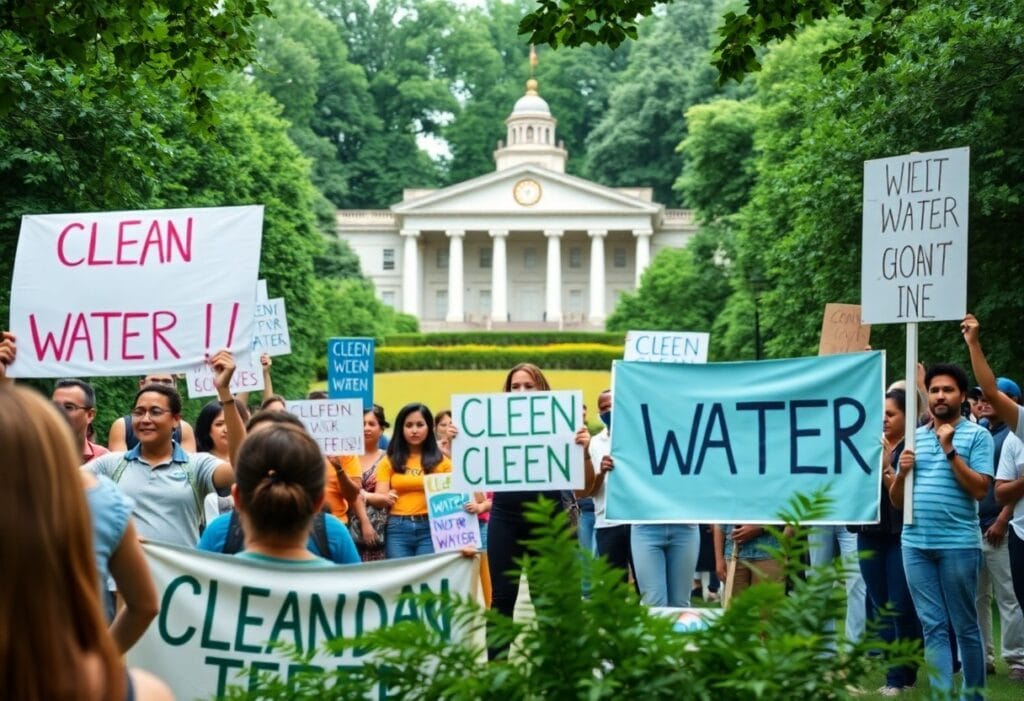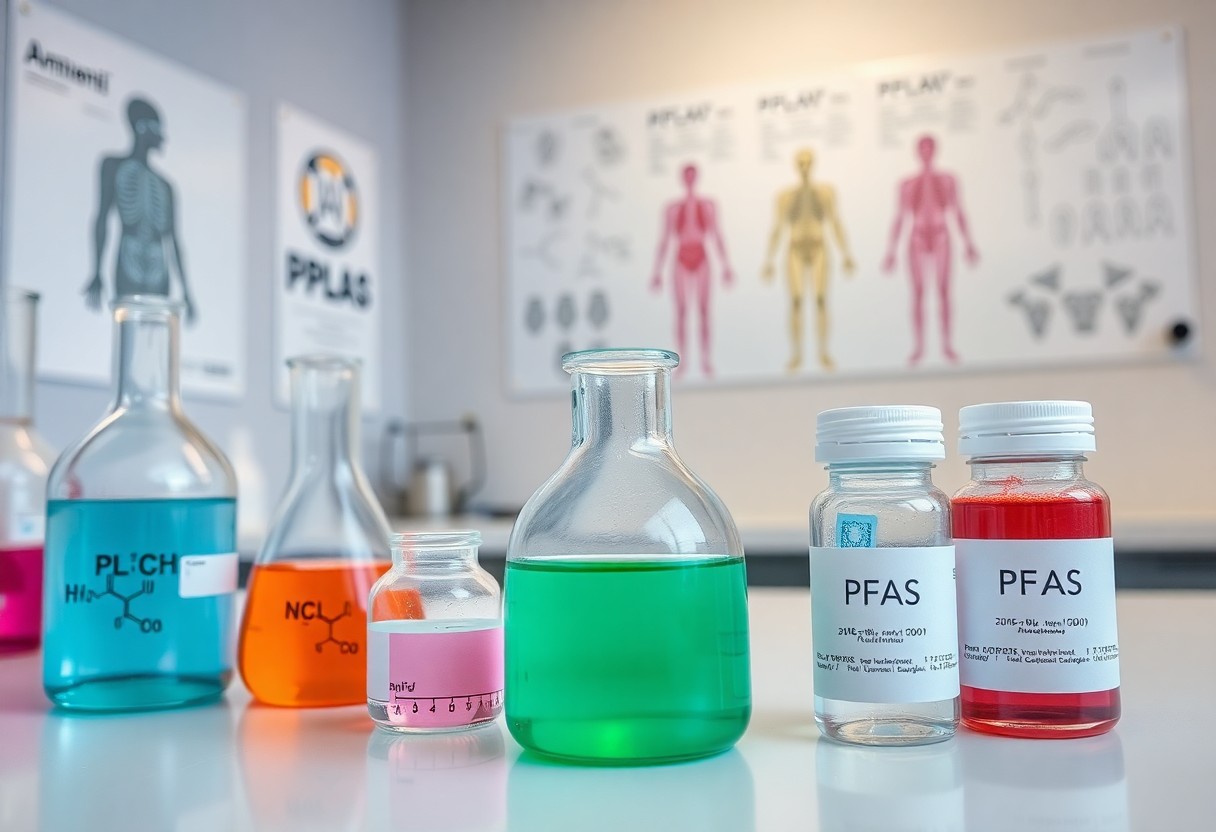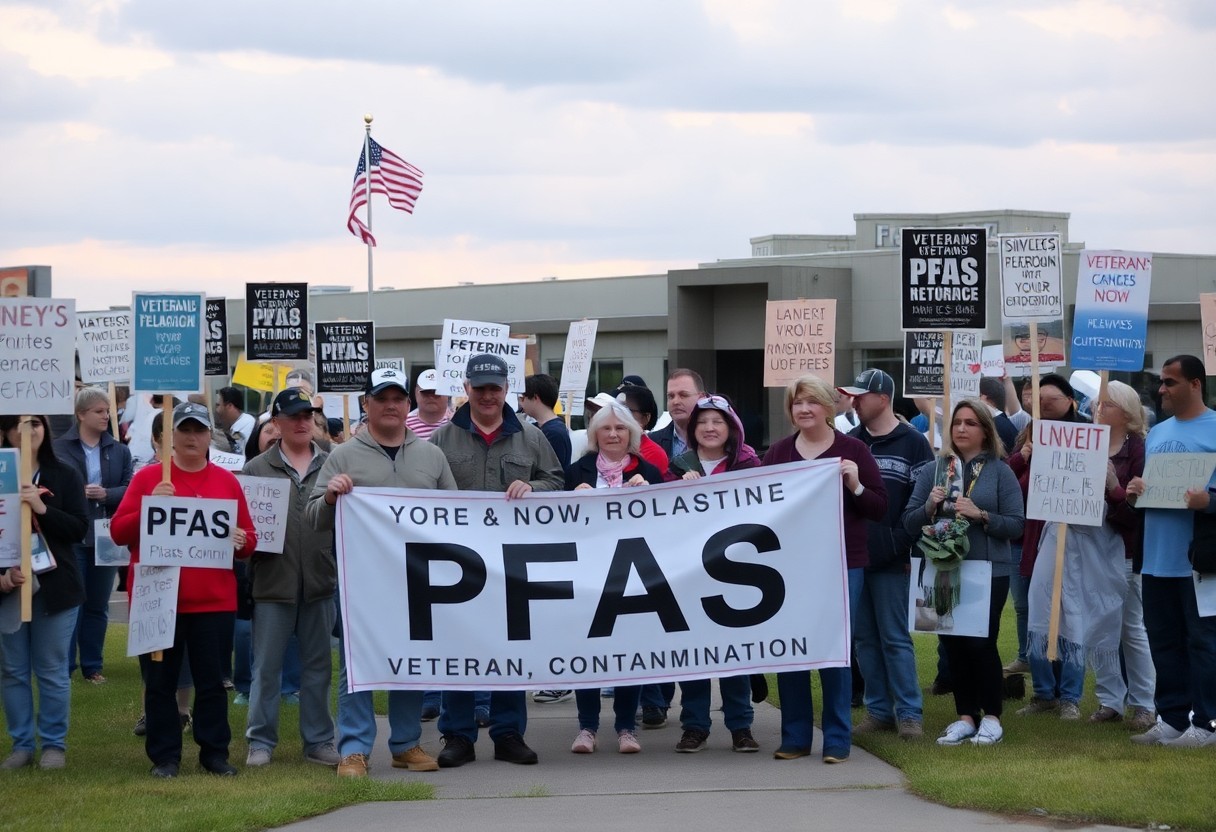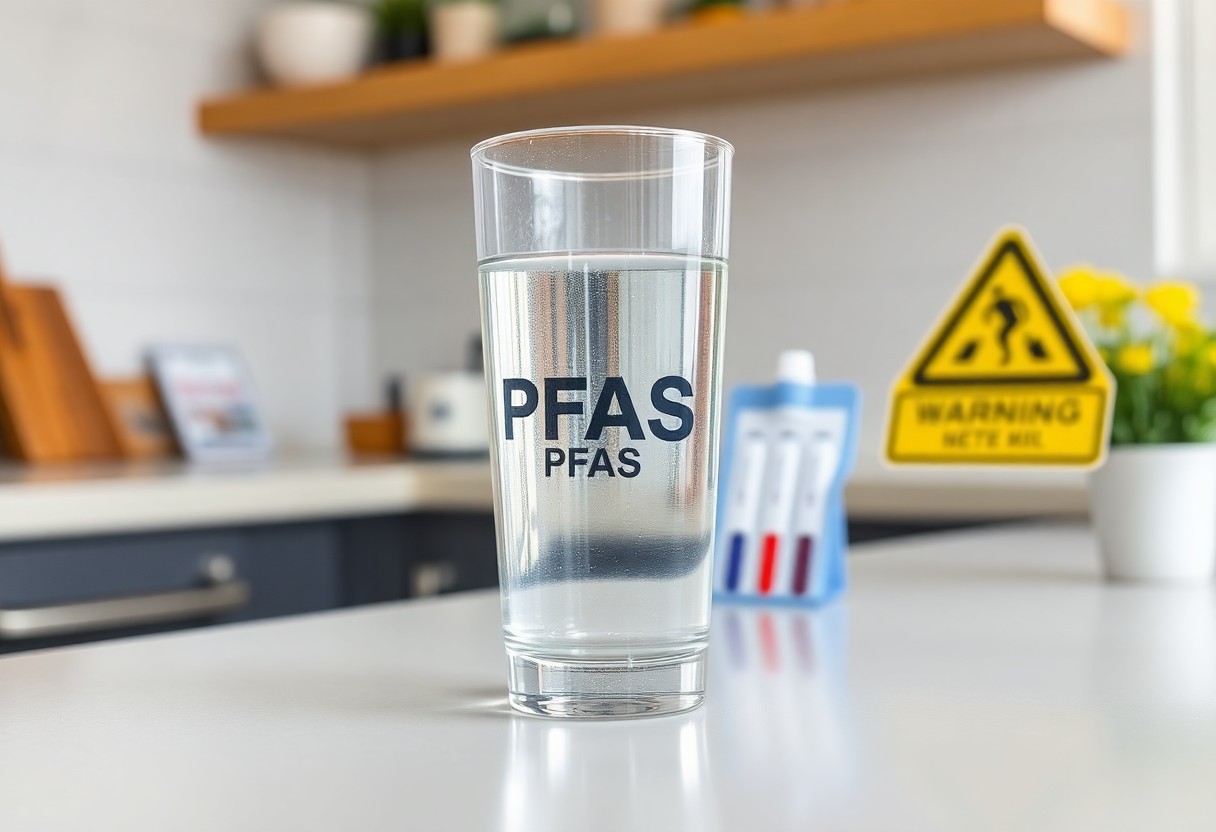This blog post will guide you through the ongoing battle against PFAS contamination in North Carolina, a pressing issue that affects public health and the environment. As you learn about this hazardous group of chemicals found in drinking water, you’ll discover how activism and awareness can drive meaningful change. Join hands with community leaders, stay informed about legislative efforts, and understand your role in advocating for clean water and safer practices. Together, you can make a difference in the fight against PFAS pollution.
Understanding PFAS
For many, the term PFAS might be unfamiliar, but it refers to a group of synthetic chemicals used for decades in various products, including non-stick cookware, food packaging, and firefighting foams. These chemicals are known for their ability to repel water and grease, but their persistent nature means they don’t break down in the environment, leading to widespread contamination.
What are PFAS?
For you, understanding PFAS is crucial, as these ‘forever chemicals’ encompass thousands of compounds that accumulate in the human body over time. Their extensive use in industrial and consumer products has raised significant concerns regarding their long-term impact on your health and the environment.
Health and Environmental Impacts
Understanding the health and environmental impacts of PFAS is vital for advocating for safer practices. These chemicals have been linked to various health issues, including cancer, immune system disruption, and thyroid disease. On an environmental level, PFAS contamination can affect water supplies, leading to risks for wildlife and ecosystems. Contaminated drinking water has been identified as a significant source of exposure for you, making it crucial to engage in local policies aiming to reduce and regulate PFAS levels in your community.
Plus, the dangers associated with PFAS cannot be overstated. Exposure to these substances has been shown to cause serious health complications such as reproductive issues and liver damage. These toxic compounds have also been discovered in soil and water sources, harming not only your health but also that of local wildlife. Taking action against PFAS is vital to protecting your health and ensuring the safety of future generations. Awareness and advocacy are key to challenging and changing the environmental policies surrounding these harmful chemicals.
Current Situation in North Carolina
Some communities in North Carolina are facing significant challenges due to PFAS contamination in water supplies, with many residents concerned about the health risks associated with these harmful chemicals. Efforts to address this pollution have gained traction, yet ongoing debates about regulation and cleanup efforts persist as you navigate the complexities of this pressing issue.
Legislative Actions
Now, North Carolina lawmakers are taking steps to tackle PFAS contamination by introducing bills aimed at stricter regulations on these substances and funding clean-up projects. By staying informed and involved, you can play a part in advocating for stronger environmental protections and policies that prioritize public health.
Ongoing Litigation
There’s an increasing wave of litigation as communities, environmental organizations, and even state officials are suing manufacturers of PFAS for damages caused by contamination. These legal battles aim to hold companies accountable for their role in polluting your water supply and threatening your health.
Plus, this litigation not only seeks financial reparations but also aims to establish clearer regulations that can prevent future contamination. Victims of PFAS exposure are pushing for accountability, and successful cases may lead to more stringent standards and practices in the industry, ultimately benefiting you and your community. It’s crucial to stay updated on these developments as they could significantly impact your environment and health.
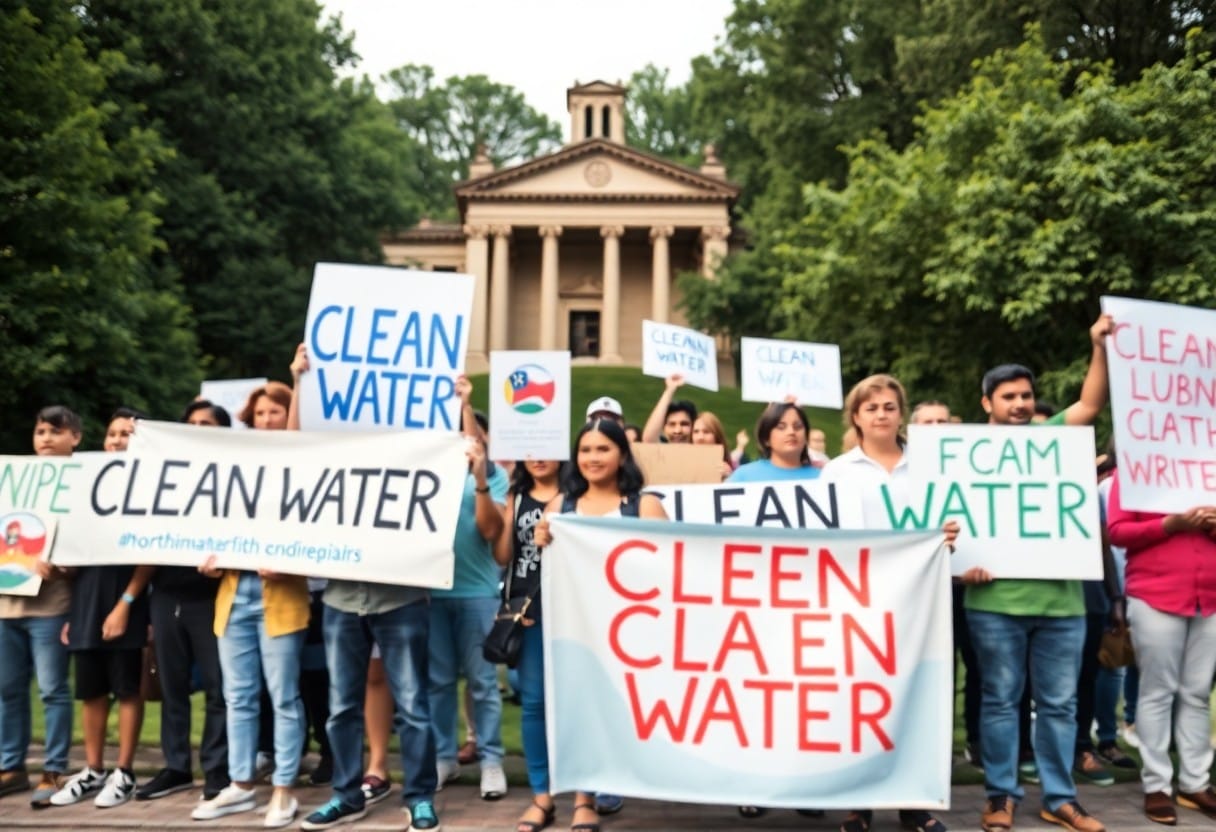
How to Get Involved
While you may feel overwhelmed by the PFAS issue in North Carolina, there are actionable steps you can take to join the fight. Educate yourself about the dangers of PFAS, engage in local initiatives, and advocate for policy changes. Every small effort counts towards a cleaner and healthier community.
Joining Local Advocacy Groups
On your journey to combatting PFAS pollution, consider connecting with local advocacy groups dedicated to this cause. These organizations offer a platform for you to collaborate with like-minded individuals, stay informed about ongoing issues, and participate in organized actions and events.
Participating in Community Meetings
You can make your voice heard by attending community meetings related to PFAS contamination. These gatherings often invite public feedback and can influence local decision-making. By sharing your concerns and experiences, you contribute to a collective call for action that demands accountability from industries and legislators. Engagement can lead to increased awareness and potentially spark initiatives aimed at addressing PFAS contamination in your area.
Plus, engaging in community meetings can also provide you with valuable information about local efforts to address PFAS issues. Public officials often report on ongoing investigations and future plans during these gatherings, giving you insights into the steps being taken to protect your community. By asking questions and raising concerns, you actively participate in shaping policies that can lead to a safer environment for you and your neighbors. Your involvement can help create a ripple effect, inspiring others to join the movement against PFAS pollution.
Tips for Raising Awareness
Despite the challenges in addressing PFAS contamination, you can make a significant impact in your community. Consider the following strategies:
- Share valuable resources and articles about PFAS.
- Start conversations with friends and family regarding water safety.
- Engage with local advocacy groups focused on environmental protection.
- Attend town hall meetings to discuss PFAS issues.
Knowing how to effectively communicate these issues can mobilize others for action.
Spreading Information Through Social Media
Little actions on social media can amplify the message about the dangers of PFAS contamination. Utilize platforms like Twitter, Facebook, and Instagram to share articles, infographics, and personal stories. Engage with local and national advocacy groups’ content to spread awareness and encourage discussion among your followers. By consistently posting updates, you can foster a community dedicated to fighting against harmful chemicals and environmental injustice.
Organizing Educational Events
Educational events can be vital for raising community awareness about PFAS impacts. These gatherings not only provide critical information but also empower individuals to take action. You can organize panels featuring experts in environmental health, host workshops on safe drinking water practices, or create community forums to discuss legislative changes needed. By uniting your community around this pressing issue, you will help establish a support system that creates positive change and holds responsible parties accountable.
A successful event should focus on informing and engaging participants regarding the serious threat of PFAS contamination in our water supply. Key aspects to consider include inviting knowledgeable speakers who can articulate the science behind PFAS and its effects on public health, offering resources for residents to learn about testing their water, and discussing local legislation aimed at addressing these contaminants. By creating a platform for knowledge and dialogue, attendees can leave empowered to advocate for safer drinking water and informed choices for themselves and their families.
Factors to Consider When Taking Action
To effectively contribute to the fight against PFAS contamination in North Carolina, you should consider several important factors. These include:
- Your local water quality
- Community engagement
- Legislation impacts
- Available resources for advocacy
Any action you choose to take can make a significant difference in raising awareness and promoting change.
Understanding Policy Changes
While navigating the landscape of PFAS legislation, it’s vital to stay informed about recent policy updates and proposed regulations. Understanding these changes enables you to advocate effectively for stronger environmental protections and helps inform your community about ongoing governmental responses to PFAS contamination.
Engaging with Local Leaders
Clearly, engaging with local leaders can elevate your efforts in addressing PFAS issues. By reaching out to those in positions of power, you can advocate for necessary actions and policies that prioritize community health and safety.
Changes in local governance can have a direct impact on how PFAS contamination is addressed. Reaching out to your local leaders not only raises awareness about the risks associated with PFAS but also promotes initiatives aimed at improving water safety regulations. Moreover, your advocacy can influence critical decisions related to pollution control and funding for environmental protection efforts, ultimately leading to a healthier community.
Resources for Further Information
Not all resources are created equal. To effectively join the fight against PFAS in North Carolina, you should seek out reputable organizations and information. By leveraging the right tools and knowledge, you can contribute to efforts in combating PFAS contamination and protecting your community.
Government and Nonprofit Organizations
Government agencies and nonprofit organizations provide valuable support and information to help you understand PFAS issues. You can connect with local environmental departments, the Environmental Protection Agency (EPA), and nonprofit organizations focused on clean water advocacy. These resources will guide you in discovering ongoing efforts and how you can get involved.
Educational Materials and Workshops
Educational opportunities are vital for empowering you to take action. You can participate in workshops and access informative materials that teach you about PFAS, their dangers, and ways to advocate for change. These resources provide insights into safe practices to minimize your exposure and mobilize your community.
Another way to enhance your awareness is by attending workshops that focus on PFAS education. Through these interactive sessions, you will gain a deeper understanding of PFAS contamination effects on health and the environment. Many organizations offer informative materials tailored to different audiences, allowing you to share your knowledge with others. Engaging with local efforts not only fosters awareness but also unites your community for collective action, paving the way for positive change in reducing PFAS exposure.
Conclusion
So, you can play a vital role in North Carolina’s fight against PFAS contamination by staying informed, supporting local initiatives, and advocating for stronger regulations. Your voice matters in pushing for accountability from manufacturers and ensuring clean water for your community. Engage with local grassroots organizations, attend town halls, and participate in discussions that aim to elevate awareness and drive change. By actively involving yourself, you not only contribute to the collective effort but also empower others to do the same, fostering a healthier environment for future generations.


